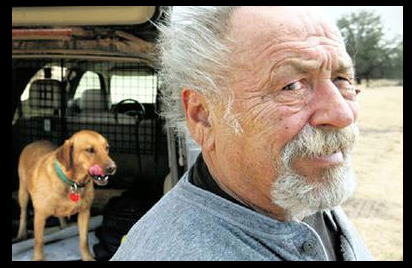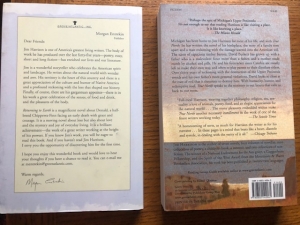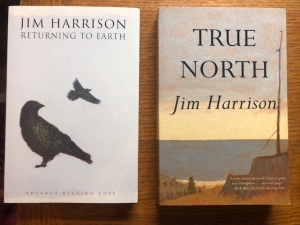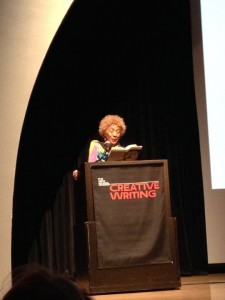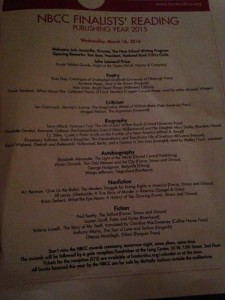“On Browsing in Bookstores, a Pastime” by M. G. Turner
 There is something uniquely magical about walking inside a bookstore, preparing to browse: you cross the threshold and suddenly you have been transported, quite literally, to a world of books. As the atmosphere settles, you notice there is a quiet here that reigns supreme, a quiet comparable perhaps only to that of a library; a pregnant hush fills the air and instills a state of calm that you would be unlikely to find elsewhere. Especially in New York City where the aggressive frenzy of life never ceases, the bookstore—and its ill-treated cousin, the library—can be an oasis, a place of refuge, a second home that can be utilized when other options of play or fun or drink have been depleted or appear uninviting.
There is something uniquely magical about walking inside a bookstore, preparing to browse: you cross the threshold and suddenly you have been transported, quite literally, to a world of books. As the atmosphere settles, you notice there is a quiet here that reigns supreme, a quiet comparable perhaps only to that of a library; a pregnant hush fills the air and instills a state of calm that you would be unlikely to find elsewhere. Especially in New York City where the aggressive frenzy of life never ceases, the bookstore—and its ill-treated cousin, the library—can be an oasis, a place of refuge, a second home that can be utilized when other options of play or fun or drink have been depleted or appear uninviting.
When times are tough the world of books calls to us, and if we’re lucky we heed that call—the call of what we must do and not what we ought to. There is no greater pleasure than going to a bookstore with an objective in mind, say to purchase some work or other by Balzac and leaving inexplicably with a Faulkner. Bookstores divert our expectations. The shelves in many of New York’s finest are crammed high to the ceiling with both old and new tomes that at first speak to us in voices we may only hear subliminally. Thus visuals are our calling card, our way in. Often it is the seductive glint of a spine or the flicker of a cover that catches our eye, and as we pull the book off the shelf, and stare at it, a love affair begins. The eye tries to comprehend what the soul sees clearer. We know there is some future here for us, our paths will diverge together, we will save that spark and let it grow—that is, if we are lucky and decide not to put whatever work we have found back on the shelf where it will be consigned to wait a while longer for the coming of its true owner.
But if we hold in our hands the book we are meant to read, then we are giving ourselves over to something unconscious and in some ways very powerful. What we are giving ourselves over to is Fate. For reading books, and at the outset, buying books, is very much like making friends. The object itself transcends the lucid boundaries of paper and ink; it is so much more, and because of that the weight of a decision rests heavily on our shoulders. Do you buy another Nabokov? No, you’ve already read four of him. Another Tolstoy? You haven’t even finished Anna Karenina. A new edition of Ulysses? You have two already, dog-eared and disgruntled and waiting to be finished. You walk on aimlessly, through the aisles, dodging people taking on a similar pursuit: beautiful girls in faded jean jackets and sunglasses on their foreheads, old men stooping over dangerously to get a look at some old and beaten Melville, and the others like yourself trying to work themselves up into a state of rapt determination, studying the walls, trying to discern the titles of famous works, squinting as if at the hieroglyphics of Luxor.
The weight of a book in hand is equivalent to the weight of gold. You measure it, test it, consider whether you can withstand the flurry of its pages, the emotional impact of its premise. Stories are contained within stories, characters within characters, subtlety gives way to novelty, novelty to extremity, enjoyment to a cessation of pain. For that is what all the browsers, including yourself are looking for: a place to stop and sit awhile, to direct thought consciously toward a more righteous purpose, feeding the imagination a meal it cannot make on its own.
The shelves are calling to you. You know not to make a mistake. Occasionally you do make one and you are back at the register the next day making the same hurried, nervous claim: “I bought this for my friend but it turns out he already had it.” Several Hemingways have found their way back to this bardo. Tolstoy’s What is Art? was too polemical for your taste. A copy of the Master and Margherita whose translation you utterly hated was happily parted with. Silently, the cashier, gives you store credit and with this slip, handed over with a subdued frown—half-judgement, half-dismay—you are now able to go back to the walls, back to the drawing board as it were, to feast your eyes over the multitude of possibilities, the bold, broad scope of world literature staring you so determinedly in the face.
And finally you find what you’re looking for. And that pain does cease. Until of course you finish the book at a remarkable clip and opt to do it all again. The energy to read recycles, reincarnates, reinvigorates, and you hope never to give up the journey; even after you have lined up your finished books like the proud trophies they are, there is always a little more room, another book case to fill, another story to sink into. Finished Mann’s Buddenbrooks, well there’s always The Magic Mountain or Doctor Faustus. You’ve read those two Flauberts but there’s more Proust to dig into, a seemingly endless supply of it. Turgenev always wins over the other, more popular Russians, but there is not much of him along the walls, save the obvious in Fathers and Sons. You’d read more Dostoyevsky if you didn’t hate his guts and think he was an anti-semite and in many ways a difficult and stifling writer. You need to read more women, it’s a fault of the whole system, the whole structure, but for your part you do love Woolf, Chopin, Cather, Stein; Wharton is an undeniable great but her meanness never ceases and it’s not clear she even likes her characters.
But no matter who you choose—or rather who chooses you—the point is never to give up on books or decline what they have to offer. The point is to never cease searching for some little taste of paradise that we had previously lacked, to find the good in the bad, the large in the small, the mediocre in the great. You can see in three dimension and you can read in four. To live other lives is to live your own more fully. You can’t believe it sometimes, the depth, the brevity, the longevity, the incalculable gifts given to us by people who worked sitting down. It is connection that we are looking for when we pace like ghosts up the hallways of some magnificent temple of literature, filled to bursting with every voice; male, female, Black, white, and all varieties of humanity. Nothing can touch us, and by the same token, everything can. For we want it to. We will it to. For if Fate has deemed it, we go home happy—and if we’re lucky, stay that way.

